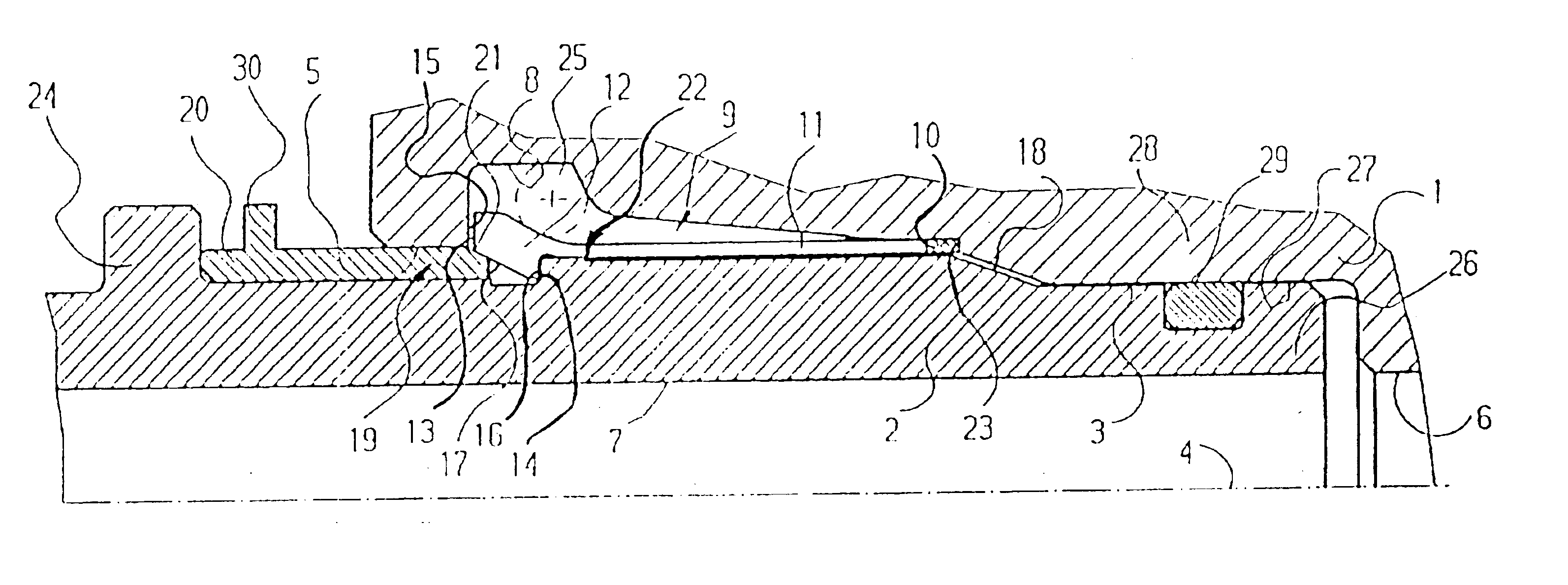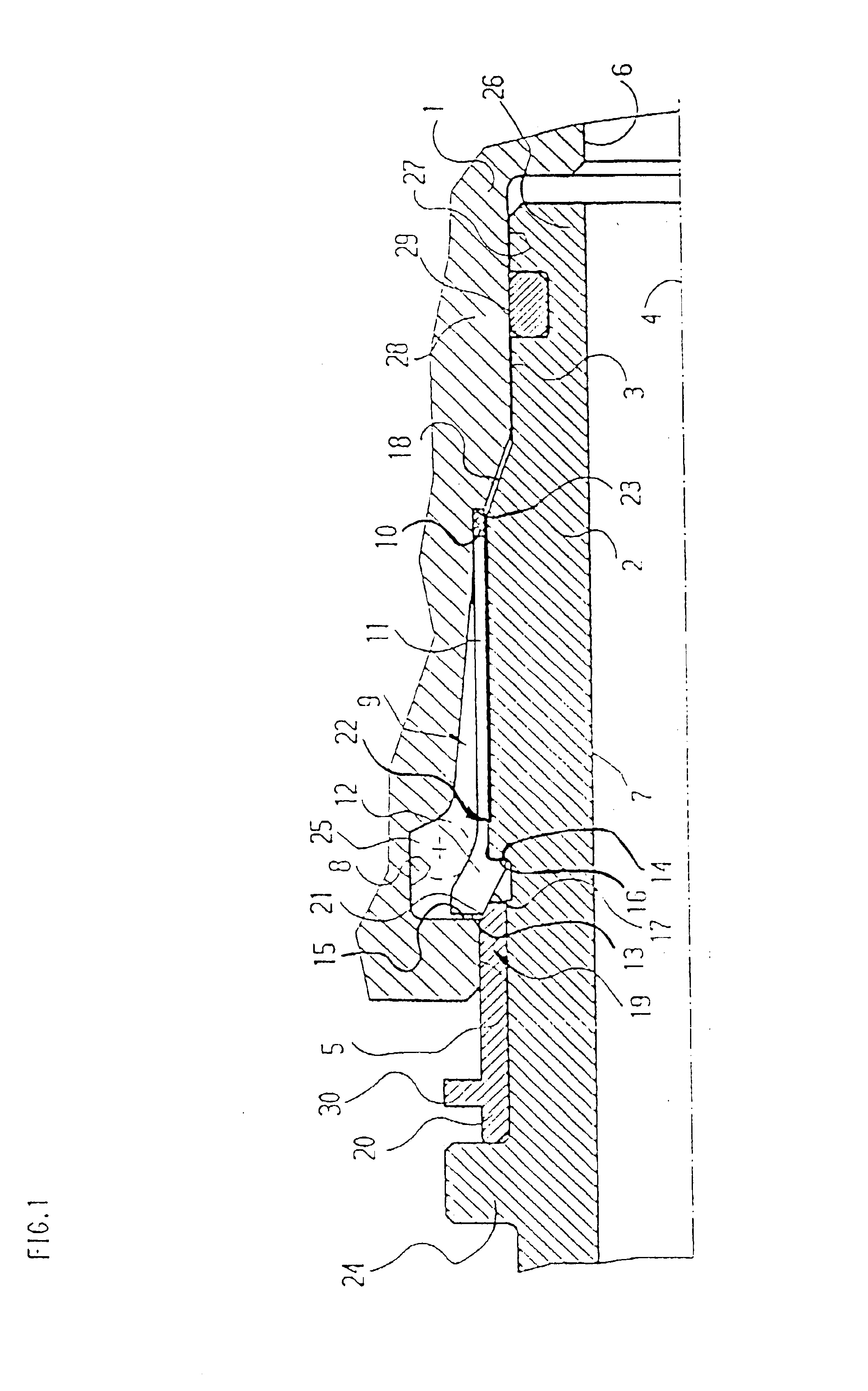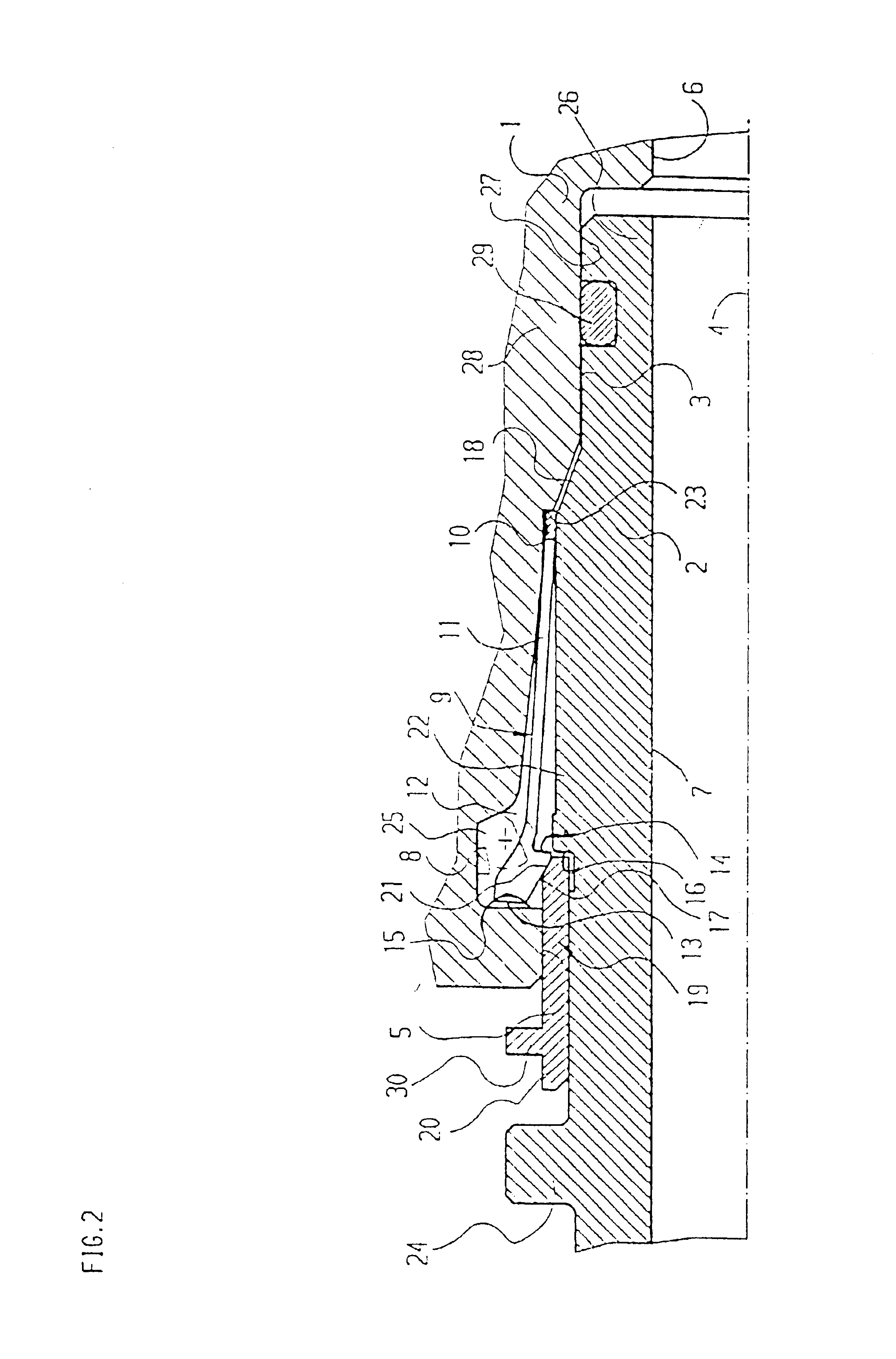Coupling for connecting hydraulic ducts
a technology for connecting hydraulic ducts and hydraulic ducts, which is applied in the direction of couplings, pipe elements, mechanical equipment, etc., can solve the problems of high mechanical loading of plastic rings, cumbersome assembly, and inability to hold the residual locking elements, and achieve the effect of few components and easy pre-assembling
- Summary
- Abstract
- Description
- Claims
- Application Information
AI Technical Summary
Benefits of technology
Problems solved by technology
Method used
Image
Examples
Embodiment Construction
[0053]The following description of the preferred embodiment(s) is merely exemplary in nature and is in no way intended to limit the invention, its application, or uses.
[0054]FIG. 1 shows a coupling for connecting hydraulic ducts according to the invention. A first coupling element 1 is in the form of a female coupling and a second coupling element 2 is in the form of a male coupling. The first coupling element 1 has a receptacle 3. The second coupling element 2 is inserted into the receptacle in the direction of a longitudinal axis 4 through an opening 5. The first coupling element 1 has a first axial bore 6 and the second coupling element 2 has a second axial bore 7. The axial bores 6 and 7, respectively, are connected to hydraulic ducts.
[0055]An annular recess 8 is provided in the receptacle 3 of the first coupling element 1. A holding element 9 rests in the annular recess 8. The holding element 9 has a ring 10 coaxially arranged on the longitudinal axis 4. Axially extending sprin...
PUM
 Login to View More
Login to View More Abstract
Description
Claims
Application Information
 Login to View More
Login to View More - R&D
- Intellectual Property
- Life Sciences
- Materials
- Tech Scout
- Unparalleled Data Quality
- Higher Quality Content
- 60% Fewer Hallucinations
Browse by: Latest US Patents, China's latest patents, Technical Efficacy Thesaurus, Application Domain, Technology Topic, Popular Technical Reports.
© 2025 PatSnap. All rights reserved.Legal|Privacy policy|Modern Slavery Act Transparency Statement|Sitemap|About US| Contact US: help@patsnap.com



